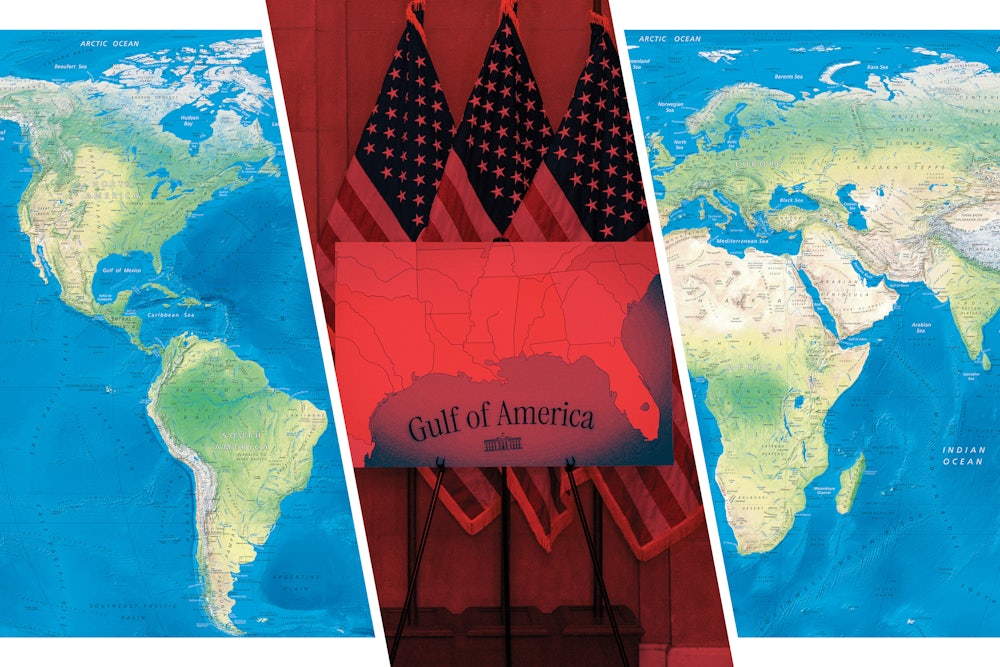I am a historian of South Asia who moved to the United States in 2011. Almost immediately I was struck by how firmly the geographical distance of America from the rest of the world is mirrored in approaches to teaching and learning U.S. history. Students coming to college view American history primarily, if not exclusively, through the lens of the nation-state. In the words of the historian Steven Mintz, the teaching of U.S. history as divorced from the global context is “the curse of insularity.”
The result is not merely general ignorance about the world beyond the U.S. borders, but also no real understanding of transnational trends. A warped sense of American exceptionalism informs how college students engage with both American and world history. Consequently, over the years that I have taught the history of South Asia, it has always been a challenge to get students to recognize patterns of similarity between the rest of the world and the United States.
But this year was different. After Donald Trump was elected to office the second time, I found my students more open to the value and significance of studying the history of other places. This came through most clearly during the spring semester, when I was teaching my course Nuclear Nations: India and Pakistan as Rival Siblings. Designed as an inquiry into the divergent paths of two countries born at the same moment—one becoming the largest democracy in the world, while the other was subject to repeated military dictatorships—the course pushes students to consider how even the world’s largest democracy is in fact prone to bureaucratic authoritarianism.
When I started teaching the course this year, the majority of my students at Carleton College were still reeling from the results of the elections. Many said that, in the face of the fire hose of illiberal executive orders, the perversion of the rule of law, and the blatant disregard for constitutional norms, they no longer read the news, because it was “too depressing.” Some even said they were taking my course as a means to escape the present moment. As it turned out, it was learning about the history of South Asia that helped them ground themselves and contend with the ugly realities of Trump 2.0.
Perhaps the most pivotal class session in the term occurred when I used the poetry of Faiz Ahmed Faiz to teach my students about the autocratic, oppressive regime of Pakistan’s General Zia ul-Haq. In 1977, Zia led a military coup; in 1979, he executed Zulfiqar Ali Bhutto, the democratically elected prime minister of Pakistan. Faiz, an outspoken communist, went into exile in Beirut, where he penned his protest poem “Hum Dekhenge” (“We Shall Bear Witness”). I encourage you to read the full poem but here is the most relevant excerpt:
Certainly we, too, shall witness that day …
When these high mountains
Of tyranny and oppression turn to fluff and evaporate
And we the oppressed will feel the beating heart of the earth under our feet
And heads of rulers will be struck
With crackling lightning and roaring thunder...
When crowns will be flung in the air — and thrones will be overturned …
Certainly we, too, shall witness that day
My students and I discussed Faiz’s artful and subversive use of Quranic imagery of the Day of Reckoning, when the unjust will be taken to task, to allude to a day in the future when the people will lead the revolution to bring down Zia and reinstate democracy. I told them that in 1986, in defiance of Zia’s ban on Faiz’s poetry on the grounds that it was “un-Islamic,” one of Pakistan’s celebrated singers set it to music and performed it in public wearing a sari (also banned by Zia) to enthusiastic shouts of “inqalaab zindabad” (“long live the revolution”).
When she sang it a second time on popular demand, a sound technician whose name is lost to history decided to secretly record it. The audio had to be smuggled out of Pakistan for safekeeping. I played that recording in class, and we considered how that unknown technician’s silent, small act was instrumental in spreading and popularizing the song. Since then, that poem and that recording in particular have become the anthem of protest and resistance, not merely in Pakistan but across South Asia. We traced the many renditions and translations of the poem subsequently sung all over the region at different times to fight the excesses and tyranny of various autocratic governments—most recently in 2019 by Indians protesting the discriminatory Citizenship Amendment Act of Narendra Modi’s government.
At a time when my students were despairing and losing hope, reflecting on the impact of the sound technician’s initiative and the role that Faiz’s poetry played in mobilizing resistance, not only in Pakistan but across national borders, allowed them to appreciate how individuals and groups have agency, as well as the potential of art to challenge authority. Learning how other societies have endured and navigated authoritarian regimes made it possible for them to have hope.
My students and I talked at length about the urgency of engaging with the histories of the world beyond the United States at this particular moment. When state-sanctioned restrictions on the teaching of U.S. history in schools, colleges, and museums are manifest and proliferating, the histories of other peoples can inspire creativity to circumvent the attack on critical thinking. For instance, there is much we can learn about resisting authoritarian attacks on the freedom to think by casting our net back to see how teachers in Norway staved off a Nazi takeover of education in 1942; how students, faculty, and the public strategized and collaborated to protect academic freedom under Augusto Pinochet’s dictatorship in Chile in the 1980s; how professors at the University of Theater and Film Arts in Budapest protested Viktor Orbán’s attack on the university’s autonomy and in 2021 established a self-education association for students leaving the university to be accredited by foreign universities; and how, after the military coup in Myanmar, groups in conflict with the regime set up alternative universities to serve regime opponents.
As we continued through the term, we kept returning to the overarching question: What is the value of engaging with the past? Why do history at all, especially at this moment of acute crisis? In addition to helping to develop historical literacy and an appreciation for context and a sense of perspective, the study of history helps forge creative possibilities for times to come. Allow me to illustrate, this time by turning to U.S. history. In 1955, C. Vann Woodward, a professor of history at Johns Hopkins, published his landmark book, The Strange Career of Jim Crow. William Leuchtenburg, a fellow historian who marched to Montgomery, Alabama, in March 1965, recalls Martin Luther King Jr. extolling Woodward’s book as “the Bible of the civil rights movement.” By showing that there was no segregation in the South from the end of the Civil War until the 1880s, Woodward tried to banish the notion that there was something natural or inevitable about that social order. Writing in the Saturday Review of Literature, renowned sociologist E. Franklin Frazier nailed Woodward’s contribution to the movement: if “the race problem was made … [then] men can unmake it.” Woodward’s dive into the past opened the possibility of a better future.
The study of history has much to offer us in our particular moment. When the winds of censorship are actively seeking to blow away our freedom to think, it shows us that the trials and tribulations of our own times, as extraordinary and unprecedented as they may appear to us, are often just the latest iteration of recurring problems that, in the words of the nineteenth-century English historian Lord Acton, “entangle the feet and vex the hearts of men.” Turning to the past can be a potent antidote to the bewilderment and desperation we feel in the face of today’s crises. Authoritarians do not merely fade away; they have to be countered and stopped. Rule of law will not endure simply because it is good; democracy is fragile and always in a fight with its opposites. The rest of the world has much to teach Americans about all of this. If Trumpism was made, it can it be unmade.




